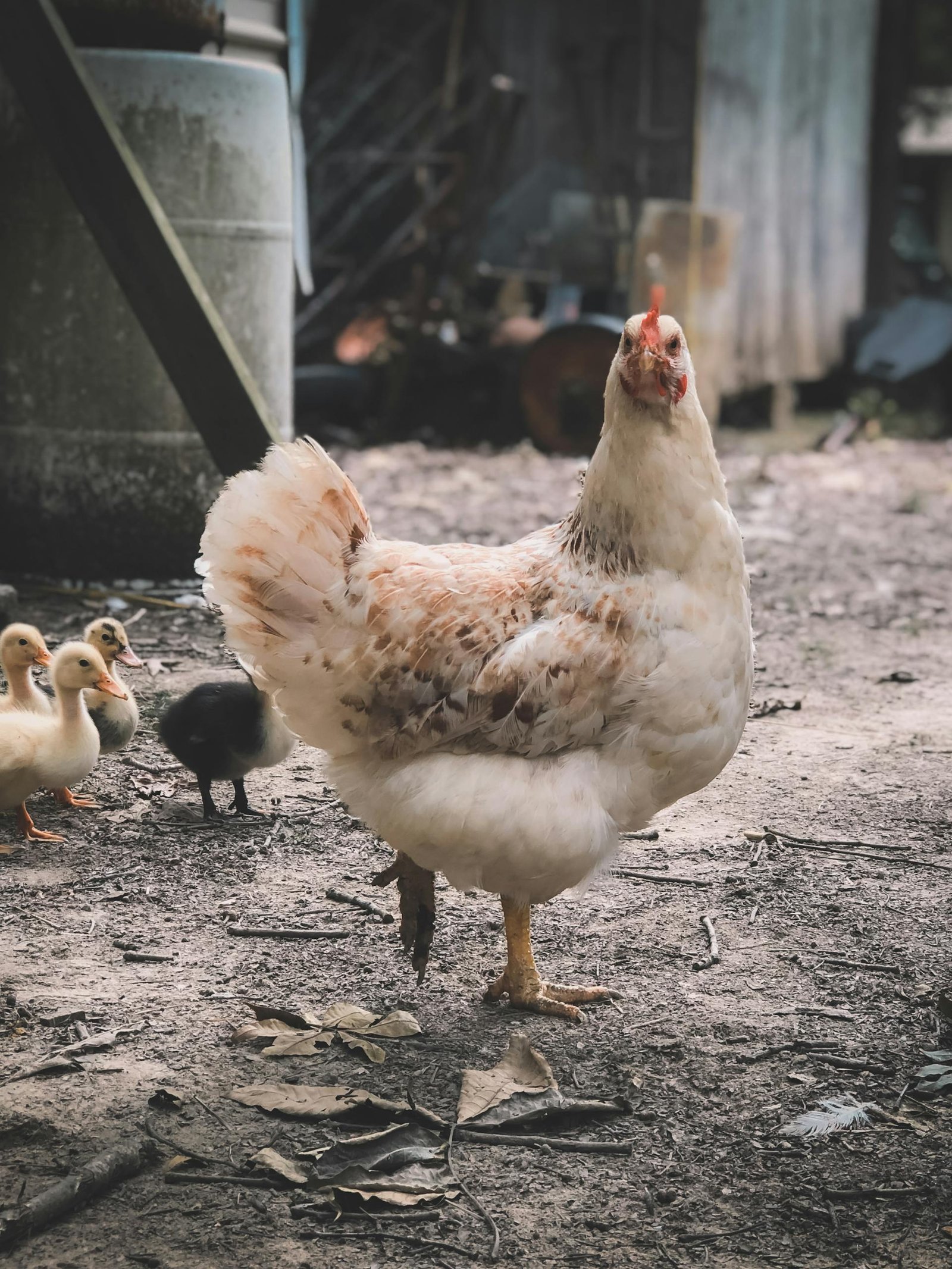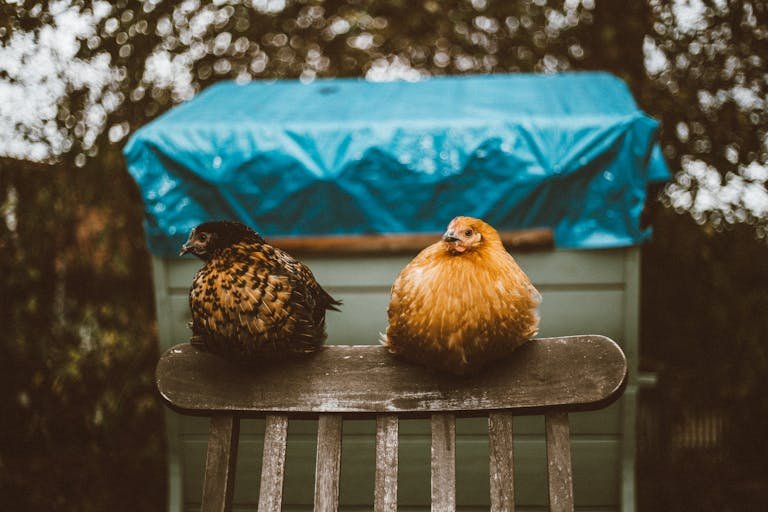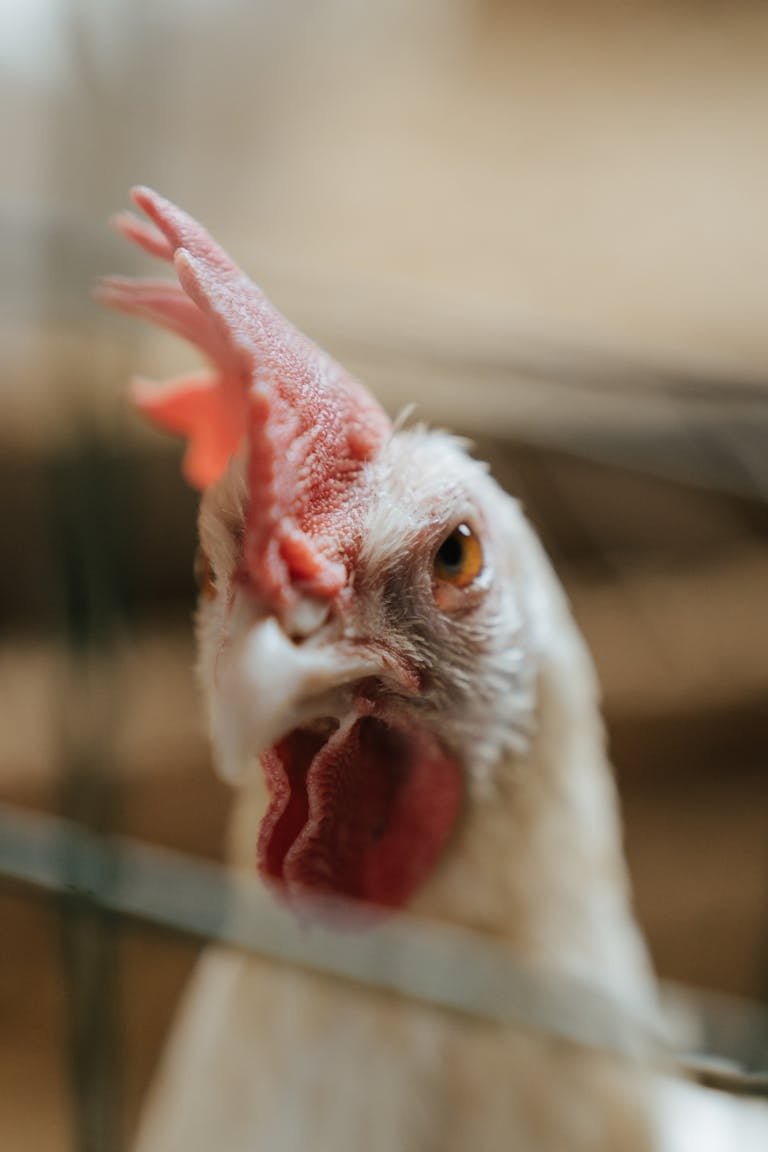Why Do Chickens Sneeze? Uncover the Poultry Puzzle

Like every other living thing, chickens may develop health complications and so, if your chickens are sneezing frequently, something might be off. Nonetheless, unlike a human being, a chicken does not get colds or flu. Their sneezing especially must always be regarded to primarily originate from an antecedent condition of the respiratory system. It is vital to know why do chickens Sneeze? and common causes, and how the problem can be solved to avoid sickness in the flocks.
Common Causes of Chicken Sneezing
Respiratory Infections
It is important to note that sneezing in chickens is most commonly associated with respiratory infections. These infections can either be bacterial, viral, or fungal, and they are usually flock infections.
Chronic Respiratory Disease (CRD)
CRD is an ordinary pulmonary disease of chickens due to the bacterial pathogen Mycoplasma gallisepticum. This disease has a very high prevalence and can be transmitted through contact with infected birds, tools, utensils, or even through the air. Symptoms of CRD include:
- Sneezing
- Swollen sinuses
- Foamy, watery eyes
- Nasal discharge
- Reduced egg production
Infectious Bronchitis
Infectious Bronchitis is a viral disease that is usually recognized in young birds but can infect chickens at any age. It is caused by coronavirus and primarily transmitted by respiratory droplets. Symptoms include:
- Sneezing
- Foamy eyes
- Swollen sinuses
- Coughing
- Drop in egg production
- Misshapen eggs
Environmental Factors
The living conditions of chickens determine the health of their respiratory systems. Environmental factors can cause sneezing and respiratory problems Environmental conditions lead to sneezing and other respiratory problems.
Dust and Poor Air Quality
Chickens react to dust and bad air quality in the chicken house. These sources of irritation can be from bedding material, feed, and even the birds themselves. Dust accumulation is abrasive to the respiratory system and might lead to sneezing.
Ammonia Buildup
Another environmental factor that leads to sneezing is an accumulation of ammonia in the environment. Chicken wastes decompose and produce ammonia. Lack of proper circulation of air or overcrowding results in increased production of ammonia that affects the respiratory system and causes sneezing, coughing, and irritation of the eyes.
Temperature Extremes
They include stress factors such as a rapid change in temperature, and drafts which makes the chickens easily affected by respiratory ailments. This implies that chickens require stable and comfortable conditions to remain healthy.
Other Factors
These include respiratory infections and environmental conditions, although sneezing in chickens can be caused by other factors.
Stress
Stress reduces the overall health of chickens and makes them vulnerable to diseases including respiratory infections. Stress factors include:
- Overcrowding
- Poor diet
- Predators
- Changes in the environment
Sinus Issues
Sometimes, this is caused by a cold or sinus problems, just like in humans, a chicken can sneeze. This can be due to some foreign bodies or infection in the sinuses.
Read Also: Do Chickens GROWL? Myth or Backyard Beast
When to Worry
However, if sneezing is continuous and is associated with other symptoms such as breathing problems, fatigue, decreased appetite, or strange nasal or ocular discharge, then it should not be excused. Such symptoms may suggest an underlying condition that, if left untreated, may worsen and necessitate immediate veterinary care.
Prevention and Treatment
It is important to embark on both prevention and control measures when it comes to the respiratory health of your chickens.
Maintain Good Coop Hygiene
To prevent any respiratory problems, one needs to maintain good coop hygiene. This includes:
- Regularly cleaning the coop and removing waste
- Providing fresh bedding
- Ensuring proper ventilation
- Avoiding overcrowding
A clean and well-ventilated coop reduces the risk of respiratory irritants like dust and ammonia buildup.
Monitor Air Quality
Again, it is important to maintain good air quality in the coop. This can be achieved by:
- Providing adequate ventilation to reduce dust and ammonia levels
- Using dust-free bedding materials
- Keeping the coop dry
Free flow of air in the chicken house helps prevent the buildup of irritants such as dust and ammonia produced from the droppings.
Manage Stress
Reducing stress in your flock can prevent respiratory issues. Strategies to manage stress include:
- Providing a calm and stable environment
- Avoiding sudden changes in the chickens’ surroundings
- Ensuring a balanced diet
- Protecting the flock from predators
A stress-free environment supports a strong immune system in chickens.
Vaccination
Vaccination can be an effective way to protect chickens against certain respiratory diseases. In general, the immunization of poultry has proven to be an efficient method of preventing specific diseases in chickens. It is recommended that you discuss with a veterinarian about the vaccination program that suits your flock.
Veterinary Care
If respiratory is an issue suspected to be an infection, one should consult a poultry veterinarian. A veterinarian is in the best position to diagnose a pet’s situation and to recommend the appropriate medication – be it antibiotics for bacterial infection or nutrition and water for viral infection.
Read Also: How Do Chickens Communicate?
Conclusion
With good health and hygiene, proper draft, management of stress and diseases, and a regular visit to the vet wherever necessary for the birds, the birds will be in good form. Therefore, making sure of your flock’s health and being noticed of the respiratory diseases would ensure that the problems of your chickens are resolved as soon as possible and your chicken house would be prosperous.





